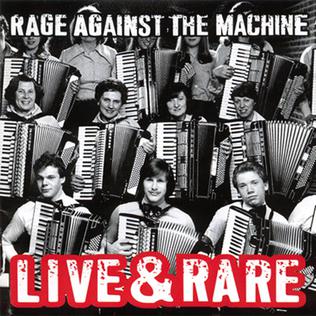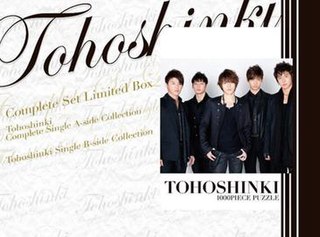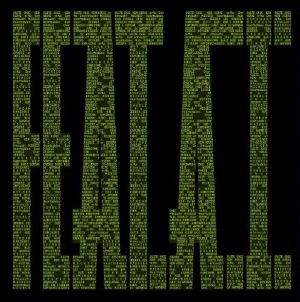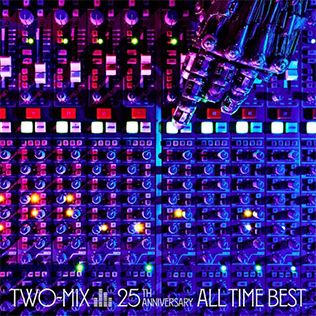Related Research Articles

Live & Rare is the first live album and the first compilation of material by the American rock band Rage Against the Machine. Released on CD only in Japan on June 30, 1998 by Sony Music Japan, the album was only available overseas as an import. It comprises "official bootlegs" previously available on other singles as well as a pair of tracks from the band's 1991 demo. In 2018, the album was released on vinyl in the United States and Europe. The album was released digitally for the first time on July 14, 2022.

Asian Kung-Fu Generation is a Japanese alternative rock band formed in Yokohama in 1996. For its entire career, the band has consisted of vocalist Masafumi Gotoh, guitarist Kensuke Kita, bassist Takahiro Yamada, and drummer Kiyoshi Ijichi. Starting out as a college band, Asian Kung-Fu Generation released a series of independent EPs featuring lyrics mostly sung in English. In 2002, they released their major-label EP debut Hōkai Amplifier, from that point singing their lyrics in Japanese. The band's musical style is influenced by seminal Western alternative rock acts as well as their own local Japanese indie rock and punk scene. Their songs incorporate various aspects of the genres, most typically expressing fast tempos and prominent power chord guitar riffs in addition to rhythmic groove and emotional lyrics. Despite the indie nature of their music, the band has enjoyed worldwide commercial success in addition to critical acclaim. Asian Kung-Fu Generation has been cited as one of the best, most balanced modern rock bands to emerge from Japan in the 2000s.

Boom Boom Satellites were a Japanese electronic music duo consisting of guitarist and vocalist Michiyuki Kawashima and bassist and programmer Masayuki Nakano. They were signed to Sony Music Entertainment Japan, with whom they had released all of their albums in Japan.

I've Sound, or simply called I've, is a Japanese techno/trance music production group based in Sapporo, Hokkaidō, Japan. Led by Kazuya Takase, it features the talents of seasoned "sound creators" and many different vocalists, known as utahime (歌姫) to their fans.

Taboo is the fourth studio album by the Japanese rock band Buck-Tick. It was released on cassette, CD and as a two-record vinyl set on January 18, 1989 through Victor Entertainment. Taboo was digitally remastered and re-released on September 19, 2002, with two bonus tracks. It was remastered and re-released again on September 5, 2007. "Angelic Conversation" was re-recorded as the b-side to the group's single "M・A・D" in 1991. "Just One More Kiss", "Iconoclasm" and "Taboo" were later re-recorded for the compilation album Koroshi no Shirabe: This Is Not Greatest Hits (1992). "Iconoclasm" was covered by J for the Buck-Tick tribute album, Parade -Respective Tracks of Buck-Tick- (2005). Taboo peaked at number one on the Oricon charts, selling 298,620 copies in the first year, and at least 300,000 in total.
Supastition is an American underground hip hop artist from Greenville, North Carolina. He has also recorded under the name of Kam Moye and Blackmel. He has appeared on songs with the likes of KRS-One, The RZA, Ras Kass, Tech N9ne, Little Brother, Croup, The Soulution, S1 (producer), M-Phazes, Tajai of Souls of Mischief, B-Real of Cypress Hill, Royce da 5'9", Elzhi, and countless others.

"Forever Love" is the fourteenth single by Japanese heavy metal band X Japan, released on July 8, 1996.

This is a comprehensive discography of the Japanese noise musician Masami Akita, best known for his project Merzbow. Since 1980 he has released hundreds of recordings, collaborated with dozens of musicians, contributed over two hundred exclusive tracks to compilations, and made numerous guest appearances on recordings by other artists.

Ramones Mania 2 is a greatest hits album by American punk band Ramones that serves as a sequel to the band's first compilation album, Ramones Mania. It includes 25 Ramones songs, from the band's last three studio albums—Mondo Bizarro, Acid Eaters and ¡Adios Amigos!—and from the band's third live album, Greatest Hits Live, all of which were released on Radioactive Records. Although this compilation was released a decade after 1989's Brain Drain, it does not feature any songs from that album, as the band was with Sire Records at that time. It was released in 1999 as a Japanese-only release on EMI Japan. Unlike the first album, all the songs here are presented in chronological order. It is currently out of print.
This is the discography for Japanese boy band KAT-TUN.
The discography of Buck-Tick includes 23 studio albums, 4 live albums, 2 extended plays, 43 singles, and 41 video albums. Formed in 1983 in Fujioka, Gunma, the Japanese rock band has consisted of Atsushi Sakurai, Hisashi Imai (guitar), Hidehiko Hoshino (guitar), Yutaka Higuchi (bass) and Toll Yagami (drums) since 1985. In their three decade career, nearly all of their albums have reached the top ten on the charts and they have experimented with many different genres of music, including punk, dark wave, electronic, industrial, gothic and straight rock. Buck-Tick are commonly credited as one of the founders of the visual kei movement.

Greatest Hits is a compilation album by American rock band Bon Jovi, released on October 29, 2010.

"1/3 no Junjō na Kanjō" is a song by the Japanese rock band Siam Shade, released in 1997. The song was first released as their sixth single on November 27, 1997, and also featured on their fourth studio album Siam Shade IV - Zero, released on January 21, 1998.

The discography of the Japanese pop rock band Scandal consists of ten studio albums, twenty-seven singles, seven live albums, four compilation, two extended plays and three other video albums.

The Complete Set Limited Box is a box set released by South Korean pop group Tohoshinki. It is a series of two Japanese compilation albums released by the Avex sub-label Rhythm Zone on June 30, 2010, two months after former Tohoshinki members Jejung, Yuchun, and Junsu left the band to form JYJ. The first compilation album in the series, Complete: Single A-Side Collection, includes all A-side singles released by Tohoshinki since their Japanese debut in April 2005. The second album, the Single B-Side Collection, consists of twelve popular B-side tracks Tohoshinki released over the years. The two albums were compiled together in the exclusive Complete Set Limited Box, which was also released on June 30, 2010. The limited edition includes a 1,000-piece jigsaw puzzle.

Sakanazukan is a compilation album by Japanese rock band Sakanaction. It was released on March 28, 2018, to commemorate the tenth anniversary of the band's major debut. Physical editions are accompanied by a fish-themed book about the music, in keeping with the band's name and frequent references to fish.
The discography of the Japanese singer/songwriter Yōko Oginome consists of seventeen studio albums, nine compilation albums, and forty one singles released since 1984.

"Itoshisa to Setsunasa to Kokoro Zuyosa to" is the fourth single by Japanese singer Ryōko Shinohara, released on July 21, 1994, by Epic Records/Sony Music Entertainment Japan under the Tokyo Performance Doll label Cha-Dance. Written and produced by Tetsuya Komuro, the song was used in the Japanese release of the 1994 anime film Street Fighter II: The Animated Movie during the scene where Ryu and Ken Masters team up to fight Vega/M. Bison. The B-side is "Good Luck", which was also featured in the film as the ending theme.

Feat. Ai is the second compilation album by Japanese–American singer-songwriter Ai, released December 1, 2004, by Island Records and Universal Sigma. The compilation was Ai's first release under Island Records and contains a variety of songs that have her as a featured artist.

Two-Mix 25th Anniversary All Time Best is the sixth compilation album by J-pop duo Two-Mix, released by King Records on February 10, 2021.